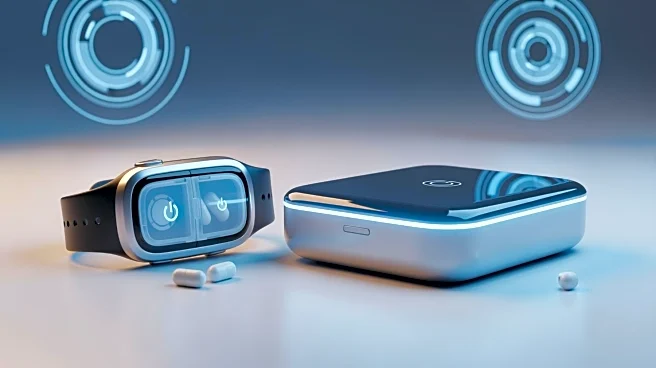What's Happening?
In a recent podcast episode, Oliver Eden from Jabil and Travis Webb from PII explored the role of connected technology in improving patient compliance and data processing in decentralized clinical studies. They discussed the challenges and opportunities
presented by autoinjectors and combination drug delivery systems, emphasizing the importance of building trust and ensuring cleaner data processing. The conversation highlighted how technology can support decentralized clinical trials, which are becoming increasingly important in the pharmaceutical industry.
Why It's Important?
The integration of connected technology in clinical trials represents a significant shift towards more patient-centric approaches in drug development. By enhancing patient compliance and data accuracy, these technologies can lead to more reliable trial outcomes and faster regulatory approvals. This is crucial for the pharmaceutical industry as it seeks to streamline processes and reduce costs while maintaining high standards of patient care and data integrity.
What's Next?
As the industry continues to adopt connected technologies, stakeholders will likely focus on developing standardized protocols for their implementation in clinical trials. This could involve collaborations between technology providers, pharmaceutical companies, and regulatory bodies to ensure that these systems are effectively integrated and compliant with existing regulations. The success of these initiatives could pave the way for broader adoption of decentralized clinical trials.
Beyond the Headlines
The use of connected technology in clinical trials raises important ethical and privacy considerations, particularly regarding patient data security and consent. As these technologies become more prevalent, there will be increased scrutiny on how patient information is collected, stored, and used, necessitating robust data protection measures and transparent communication with trial participants.
















